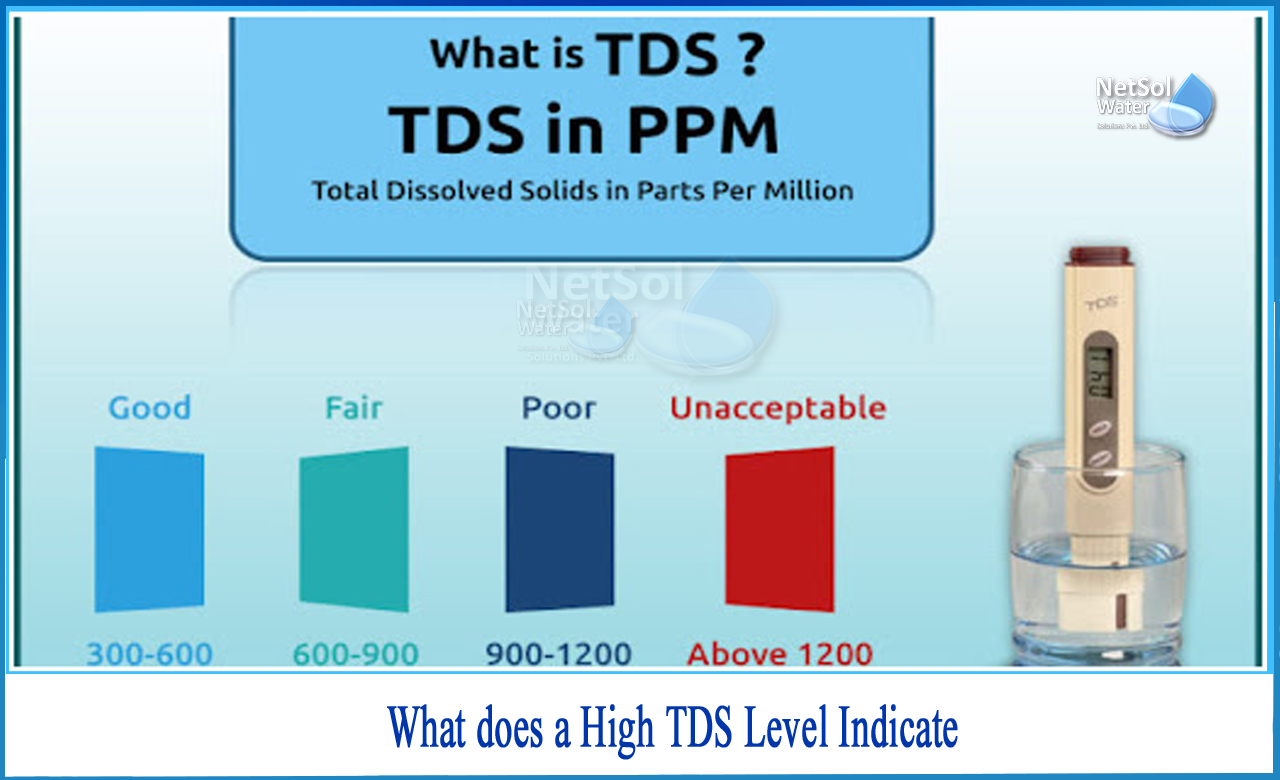What exactly is TDS?
When it comes to water, the word "TDS" stands for Total Dissolved Solids.
This refers to the quantity of 'inorganic salts' present in water. In a nutshell, this is everything that contaminates the water's cleanliness. Some of these substances can be quite harmful to your health. Calcium, potassium, chloride and sulphates are among them.
What does a high TDS level indicate?
A high TDS level indicates that the water is of poor quality.
TDS levels beyond a certain threshold may not necessarily indicate that water is unsafe. For example, some mineral water has large quantities of solids, which are not considered dangerous.
Chlorine, sulphates, and other hazardous substances can all contribute to a high TDS. The measurement is more of a guideline than a precise tool to determine if water is of good quality or not.
If high TDS is due to the presence of additional dangerous elements in your water, it might pose a major health risk to humans or aquatic life. High TDS can also indicate 'hard' water, which is more prone to create lime-scale or other deposits on pipes and appliances in the home or industries, reducing their lifespan.
TDS Levels and how to reduce them
With proper filtration, the TDS level may be reduced to guarantee that the water you drink is in the 'good' category at all times.
TDS filtration is typically done in a RO (Reverse Osmosis) filter. Deionization and distillation are alternative options, although they are less effective than filtering.
And, as we've seen, numerous purifier manufacturers and dealers consistently advise that water with lower TDS is preferable. As a result, purifiers/plants that cope with a large number of TDS levels are more expensive.
Use of RO Plants to remove TDS
When it comes to reducing TDS levels, reverse osmosis is one of the most effective processes. When we consider the current state of water contamination in India, many purification systems include RO technology. It is one of the most used filtering technologies for removing all dissolved pollutants from water.
If you're thinking about buying a whole house RO Plant because your neighbourhood needs one, keep this in mind! Always ensure that the RO plant comes with a TDS controller, which will allow you to preserve critical minerals while also delivering drinkable water.
Distillation & RO technology
Boiling the water and then condensing the steam into liquid in a clean container is the process of distillation. Despite the fact that distillation is one of the oldest methods of water purification, it is still employed to convert seawater to drinkable water, particularly in dry seashore locations where freshwater is scarce.
Distillation eliminates all minerals from water, whereas reverse osmosis uses membranes to remove most, if not all, minerals.
All the discussion leads to the fact that since heating water can be a good idea to remove TDS but RO proves to be more efficient and easier.
Technical assistance and guidance
Netsol Water collaborates with a wide range of international organizations to tackle complicated RO problems by strategically integrating modern treatment technology with practical solutions.
Netsol Water is Greater Noida-based leading water & wastewater treatment plant manufacturer. We are industry's most demanding company based on client review and work quality. We are known as best commercial RO plant manufacturers, industrial RO plant manufacturer, sewage treatment plant manufacturer, Water Softener Plant Manufacturers and effluent treatment plant manufacturers. Apart from this 24x7 customer support is our USP. Call on +91-9650608473, or write us at enquiry@netsolwater.com for any support, inquiry or product-purchase related query.



